

 A Mediterranean diet, the New England Journal of Medicine reported Monday, can lengthen one’s lifespan. So inhabitants of southern Europe can look forward to long lives — of anxiety and privation.
A Mediterranean diet, the New England Journal of Medicine reported Monday, can lengthen one’s lifespan. So inhabitants of southern Europe can look forward to long lives — of anxiety and privation.
Already mired in a depression comparable to that of the 1930s, Spain, Greece and Portugal are going to see things grow worse this year, according to an annual economic forecast released by the European Commission on Friday. Unemployment rates in both Spain and Greece — where a quarter of the populations are unemployed and the share of jobless young people exceeds 50 percent — will rise to 27 percent.
At least the leaders in power in 1930 had an excuse when the economy began to collapse. Then, there was genuine bewilderment among economists and governmental chieftains across the political spectrum about how to induce a recovery. From British Laborite Ramsay MacDonald to the German centrist Heinrich Bruning to American conservative Herbert Hoover,
» Read more about: Austerity: Will We Follow Europe’s Lead? »
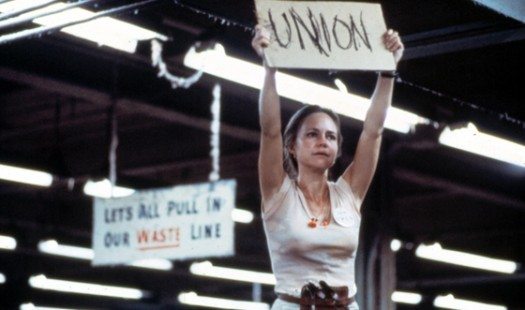
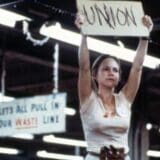
 For all the talk of saving and rebuilding the middle class, no public official from the President on down has mentioned the U-word. The U-word? “Unions.” From the 1930s through the ’70s, unions turned working-class jobs into middle-class jobs. Hourly wage earners organized themselves into unions that could fight for livable wages, health and retirement benefits, safety rules, job protection and on-the-job respect. These became such national standards that even in the historically right-to-work states in the Deep South, many of these principles prevailed.
For all the talk of saving and rebuilding the middle class, no public official from the President on down has mentioned the U-word. The U-word? “Unions.” From the 1930s through the ’70s, unions turned working-class jobs into middle-class jobs. Hourly wage earners organized themselves into unions that could fight for livable wages, health and retirement benefits, safety rules, job protection and on-the-job respect. These became such national standards that even in the historically right-to-work states in the Deep South, many of these principles prevailed.
But for three decades those work standards have been under attack, wages have dropped — with benefits cut or stolen. Why is this happening? Because union membership declined as free trade agreements shipped those jobs off-shore, as business mergers stripped workers of health care, and as strategic corporate bankruptcies took away their pension funds. Workers have been asked to “give back” in order to keep their jobs from vanishing,


For years, Los Angeles has been ground zero in an intense debate about how to improve our nation’s education system. What’s less known is who is shaping that debate. Many of the biggest contributors to the so-called “school choice” movement — code words for privatizing our public education system — are billionaires who don’t live in Southern California, but have gained significant influence in local school politics. New York Mayor Michael Bloomberg’s recent contribution of $1 million to a political action committee created to influence next week’s LAUSD school board elections is only the most recent example of the billionaire blitzkrieg.
For more than a decade, however, one of the biggest of the billionaire interlopers has been the Walton family, heirs to the Walmart fortune, who have poured millions into a privatization-oriented, ideological campaign to make L.A. a laboratory for their ideas about treating schools like for-profit businesses,
» Read more about: Walmart Heirs Spend Millions to Privatize L.A. Schools »


Don’t miss this inspiring theatrical adaptation of The Grapes of Wrath, the rabble-rousing, pro-union Depression-era classic that, alas, remains as timely now as the day John Steinbeck wrote it in 1939. With imaginative mise-en-scene, sets, props and an integrated use of live music, A Noise Within’s production brings the Homeric, heroic odyssey of the Joad family from Oklahoma to California vividly, memorably alive.
Forced off of what had been the family farm for generations by a calamity worse than the Dustbowl — greedy bankers — the displaced Joads join the “Okie” trek to California in their decrepit truck (which is assembled onstage like a jalopy jigsaw puzzle that even assembly line maestro Henry Ford would marvel at). The company creatively expresses the Joads’ long march as they go westward ho! on the thrust stage of A Noise Within’s beautiful new space. But once they reach California’s land of milk and honey,
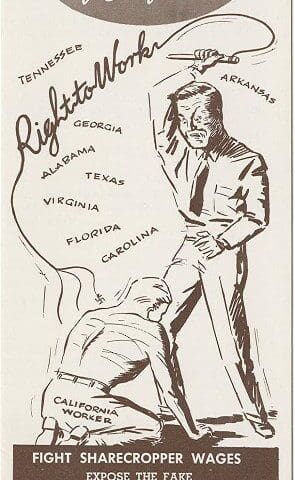
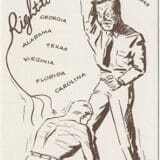
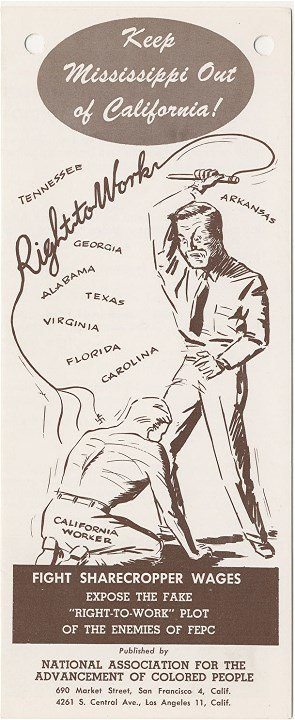 August 28 of this year marks the 50th anniversary of the famous March on Washington. For many people, the march was simply the site where Dr. Martin Luther King delivered his “I Have a Dream” speech. However, the full name of the march was the March on Washington for Jobs and Freedom, and it marked a high point of the modern Civil Rights Movement, after black communities and their supporters throughout the country boycotted buses, sat-in at lunch counters, rode in Freedom Rides, and marched in the streets. These massive protests were aimed at destroying, once and for all, the era of legal segregation — which had been a blot on this country since the end of slavery.
August 28 of this year marks the 50th anniversary of the famous March on Washington. For many people, the march was simply the site where Dr. Martin Luther King delivered his “I Have a Dream” speech. However, the full name of the march was the March on Washington for Jobs and Freedom, and it marked a high point of the modern Civil Rights Movement, after black communities and their supporters throughout the country boycotted buses, sat-in at lunch counters, rode in Freedom Rides, and marched in the streets. These massive protests were aimed at destroying, once and for all, the era of legal segregation — which had been a blot on this country since the end of slavery.
But organizers knew that the end of segregation without good jobs was no freedom at all. So, four of the march’s ten demands focused on employment issues. (See the ten demands and other items in the march’s “Organizing Manual No.


 The headlines – “Many States Say ‘No’ to Health Insurance Exchanges,” to take one example – make it seem like bad news. But it’s not. It is good news that half the states are refusing to have anything to do with the new health insurance marketplaces being set up under the Affordable Care Act.
The headlines – “Many States Say ‘No’ to Health Insurance Exchanges,” to take one example – make it seem like bad news. But it’s not. It is good news that half the states are refusing to have anything to do with the new health insurance marketplaces being set up under the Affordable Care Act.
One of the biggest differences between the good version of ObamaCare passed by the House and the mediocre Senate version that became law was the question of whether the federal government or states would run the new health insurance marketplaces (called “exchanges” in the law). But resistance by Republican governors is leading to implementation of the law in a way that is much closer to the vision in the House bill.
The new health marketplaces are the centerpiece of ObamaCare, the mechanisms through which people who don’t get health coverage at work but make too much for Medicaid will be able to purchase subsidized health coverage,
» Read more about: Just Say No to Health Care Marketplaces »


(This post first appeared February 20 on Truthout and is republished with permission.)
Republicans were quick to criticize President Obama last week after he proposed raising the federal minimum wage from $7.25 to $9 during his State of the Union address, but now a poll shows that a majority of voters agree with the president that the current minimum wage is not a living wage and a hike is in order.
A Rasmussen Reports national survey released on Tuesday found that only 15 percent of voters believe the current minimum wage provides workers with enough money to live on, while 72 percent said $7.25 an hour is not a living wage.
Voters remain more closely divided on actually raising the minimum wage, with 54 percent in favor of the raising the minimum wage to $9 an hour and 36 percent opposed to the proposal.
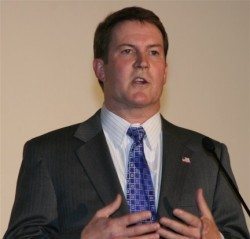

 Yesterday we published Part One of a conversation with mayoral hopeful Kevin James, continuing our interviews with Los Angeles’ front-running candidates. James is an entertainment lawyer and talk-show host, who has previously served as a U.S. prosecutor and AIDS Project Los Angeles co-chairman. (The series’ interviews, which have been edited for clarity, include Eric Garcetti, Parts One and Two, and Wendy Greuel, Parts One and Two.)
Yesterday we published Part One of a conversation with mayoral hopeful Kevin James, continuing our interviews with Los Angeles’ front-running candidates. James is an entertainment lawyer and talk-show host, who has previously served as a U.S. prosecutor and AIDS Project Los Angeles co-chairman. (The series’ interviews, which have been edited for clarity, include Eric Garcetti, Parts One and Two, and Wendy Greuel, Parts One and Two.)
Frying Pan News: Your campaign’s main selling point is that you are not a City Hall insider, that you have no institutional connection to the city’s budget problems. Other than this, why should Angelenos vote for you?
Kevin James: Neighborhoods across our city believe that this City Council has shut them out, that they don’t have a voice.
» Read more about: Kevin James: Restore City Services and Voter Involvement »

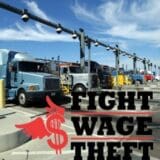
 It’s almost payday. Imagine if you went to cash your paycheck only to find that your employer had instead billed you for the opportunity to work for them.
It’s almost payday. Imagine if you went to cash your paycheck only to find that your employer had instead billed you for the opportunity to work for them.
For drivers at Seacon Logix, paying to work was only the beginning of the abuses they faced from their employer, a midsized port trucking company based in Carson.
A group of nine Seacon Logix drivers has persisted for almost two years in seeking to reclaim their wages even as the company has reached a new low in an already notoriously low-road industry.
Seacon Logix didn’t just evade the law by claiming that its employees were “independent contractors,” allowing it to avoid basic responsibilities, like payroll, income taxes and workers compensation insurance.
It didn’t just pass on its operating costs to drivers and force them to pay for vehicle leases, registration and insurance payments by illegally deducting them straight out of drivers’
» Read more about: How Low Can a Port Trucking Company Go? »
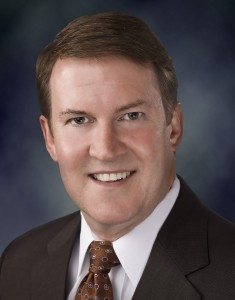

We continue our series of interviews with Los Angeles’ front-running mayoral candidates, with the first part of a talk with Kevin James, an entertainment lawyer and talk-show host, who has previously served as a U.S. prosecutor and AIDS Project Los Angeles co-chairman. (The interviews, which have been edited for clarity, include Eric Garcetti, Parts One and Two, and Wendy Greuel, Parts One and Two.)
Frying Pan News: What do you believe is the role of government in addressing the inequities of the free market system?
Kevin James: A mayor should not shy away from addressing inequality. I was [a] chairman for many years of AIDS Project Los Angeles and part of the work we did was to provide a better life for people who were struggling in theirs —
» Read more about: Kevin James on Bringing Businesses Back to Los Angeles »

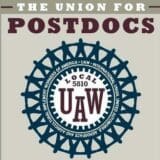
 For the thousands of international students and researchers who come to U.S. universities each year, the academy is seen as a beacon of opportunity, where the people who work the hardest and [have] the best ideas rise to the top.
For the thousands of international students and researchers who come to U.S. universities each year, the academy is seen as a beacon of opportunity, where the people who work the hardest and [have] the best ideas rise to the top.
[To] a union representing more than 6,000 postdoctoral scholars (also known as “postdocs”) at the University of California, this promise means something – the majority of our members are immigrants working in the U.S. on guest worker visas, and they are here because they have worked for years to reach the forefront of biology, physics, engineering and other fields. They have already earned PhDs, and come to UC to perform cutting-edge research – think breakthrough cancer therapies, new models for the origin of the universe, stem cell research and more.
Imagine their surprise when after arriving at UC, they are told that although the contract the union negotiated states that health care coverage is available to all postdocs,
» Read more about: University Postdocs Demand Health Care Rights »


In English, “sequestration” sounds like obscure policy wonk jargon. In Spanish, it has a very simple meaning: “kidnapping.”
The kidnapping of our economy is exactly what’s in store for later this week, unless a last minute deal derails plans to cut $85 billion from the federal budget. Corporate backed politicians like Sen. Tom Coburn (R-OK) claim that the cuts target “an excessive, bloated, big federal government that’s highly inefficient and highly ineffective.” But the truth is that the cuts will slice deep into our most important safety net programs.
What will sequestration mean for our families? According to a simple summary from the non-partisan United Way the effects in Californian’s health and education include the following:


(Editor’s Note: Today we continue our series of posts from invited writers who offer thoughts on what the coming four years hold for Los Angeles and its next mayor. These opinions do not reflect the views of Frying Pan News or the Los Angeles Alliance for a New Economy.)
The next mayor of Los Angeles will have significant environmental matters before them. Let’s take two — water and power.
On energy, the Los Angeles Department of Water and Power is obligated by California law to deliver one third of the city’s electricity with renewable power by the year 2020. The state also mandates that L.A. curtail using sea water to cool its coastal power plants by 2029. State law also sets deadlines for L.A. to get off of coal. And the state also demands that L.A. reduce its energy use by at least 10 percent via new energy efficiency and conservation measures by 2020.
» Read more about: Our Next Mayor Must Grapple with Water and Power »


Source: LearnStuff. Republished with permission.


 Tenants Together has launched “It’s Your Money,” a new campaign to stop security deposit theft by California landlords. The campaign website, www.YourDeposit.org, features know-your-rights information for tenants, tips on how to protect deposits, tenant stories and policy recommendations. The site allows tenants to share their security deposit horror stories.
Tenants Together has launched “It’s Your Money,” a new campaign to stop security deposit theft by California landlords. The campaign website, www.YourDeposit.org, features know-your-rights information for tenants, tips on how to protect deposits, tenant stories and policy recommendations. The site allows tenants to share their security deposit horror stories.
Security deposit theft is one of the most common grievances among California’s 15 million renters. In a recent survey, over 60 percent of Tenants Together members reported improper withholding of deposit money. This is an astonishing figure, but not one that surprises anyone working with California tenants.
“Millions of dollars are being stolen from tenants every year,” commented Dean Preston, Executive Director of Tenants Together, California’s statewide organization for renters’ rights. “It’s gotten so bad that tenants paying their security deposits don’t ever expect to see that money again. Something has got to change.”
Unlike in many other states,
» Read more about: Protecting Renters From Security Deposit Theft »


As we settle further into Black History Month, it’s the perfect time to reflect on Martin Luther King Jr. and his often under-acknowledged passion for economic justice. King stands as a pillar of civil rights leadership and the movement for equal rights. His legacy is special to the black community, and as a symbol, he has become an extraordinary role model to all people. However, to see King’s legacy only through this lens would miss much of his work. King was also a union ally and champion of economic justice.
King understood clearly that the battle for racial equality would be empty without a parallel fight for economic equality. “[What] will [the Negro] gain by being permitted to move an integrated neighborhood if he cannot afford to do so because he is unemployed or has a low-paying job with no future?”[i] Having equal rights without the means to exercise those rights becomes an empty promise,


 In his State of the Union Address this month, President Obama called for a much-needed increase to the federal minimum wage. Almost four million American workers are paid at or below the minimum wage of $7.25 an hour for their work, adding up to about $14,500 per year, per person for a full-time, 40 hour per week job. This doesn’t come close to covering the cost of living for a single person, let alone a family.
In his State of the Union Address this month, President Obama called for a much-needed increase to the federal minimum wage. Almost four million American workers are paid at or below the minimum wage of $7.25 an hour for their work, adding up to about $14,500 per year, per person for a full-time, 40 hour per week job. This doesn’t come close to covering the cost of living for a single person, let alone a family.
In the food retail sector, unfortunately, raising the minimum wage might not make much of a difference to those employees that are most vulnerable. Grocery stores and other food retail outlets are already avoiding minimum wage and benefit requirements for many workers by keeping them in part-time jobs. Realistically, if a worker can’t get scheduled for 40 hours per week of work, then minimum wage requirements cease to be effective in ensuring an annual income floor.


 Today we continue our series of interviews with Los Angeles’ front-running mayoral candidates, with the second part of a talk with City Controller Wendy Greuel. (Next week: Kevin James. See also, Part One of the Wendy Greuel interview, as well as Parts One and Two of our Eric Garcetti interview.)
Today we continue our series of interviews with Los Angeles’ front-running mayoral candidates, with the second part of a talk with City Controller Wendy Greuel. (Next week: Kevin James. See also, Part One of the Wendy Greuel interview, as well as Parts One and Two of our Eric Garcetti interview.)
Frying Pan News: Corporate lobbyists spent more than $30 million last year to influence decisions at City Hall – far more than unions or any other group. Do you think that big business has too much power over local government?
Wendy Greuel: Thirty million dollars is a lot of money. I will, as mayor – as I do as controller and as I did as councilmember — ensure that there is a transparent process and that no one has more access than another to the kinds of decisions that are made in the city.
» Read more about: Wendy Greuel on Lobbyists, Developers and Big Box Stores »


The Los Angeles County Metropolitan Transportation Authority (aka L.A. Metro) needed new, clean buses. If L.A. Metro had simply followed current buying protocol, its single focus would have been on finding a company to deliver the lowest-cost buses. In all likelihood, this would have resulted in jobs going overseas (but for some final assembly jobs on U.S. soil).
Instead, in January, L.A. Metro awarded a $305-million contract for 550 clean-fuel buses to New Flyer Industries, a Canadian company with dedicated manufacturing plants in the U.S. The bus order means that the company will expand its factory operations in St. Cloud, Minn., add a third shift, hire 150 women and men from the local community and create another 50 jobs in Los Angeles. L.A. Metro took a longer-term view of how “big-ticket” transportation purchases — most of them supported by federal funds — can stimulate high-quality jobs and manufacturing in the United States.
» Read more about: L.A. Metro Bus Contract Creates Jobs, Lifts Economy »


I was born in 1946, just when the boomer wave began. Bill Clinton was born that year, too. So was George W. Bush, as was Laura Bush. And Ken Starr (remember him?) And then, the next year, Hillary Rodham was born. And soon Newt Gingrich (known as “Newty” as a boy). And Cher (Every time I begin feeling old I remind myself she’s not that much younger.)
Why did so many of us begin coming into the world in 1946? Demographers have given this question a great deal of attention.
My father, for example, was in World War II — as were the fathers of many other early boomers. Ed Reich came home from the war, as did they. My mother was waiting for him, as were their mothers.
When it comes down to it, demographics is not all that complicated.
Fast-forward.
» Read more about: Immigration Reform Can Help Solve the Retirement Crisis »